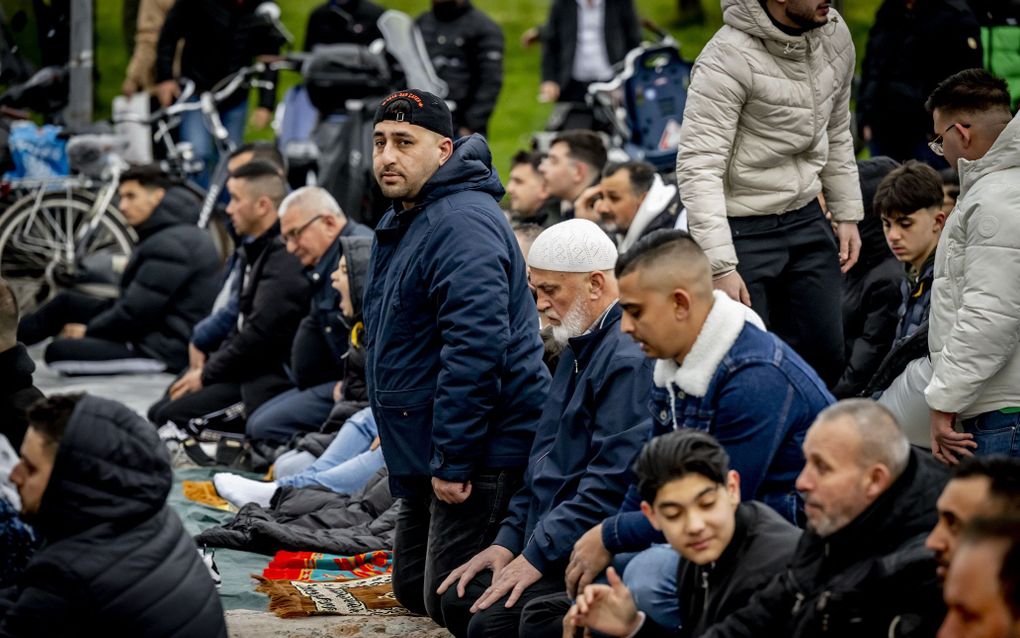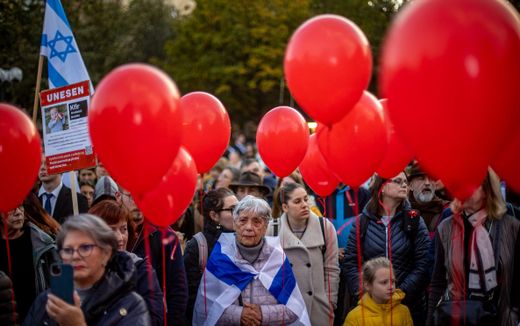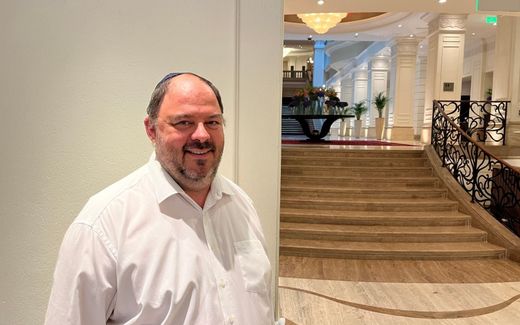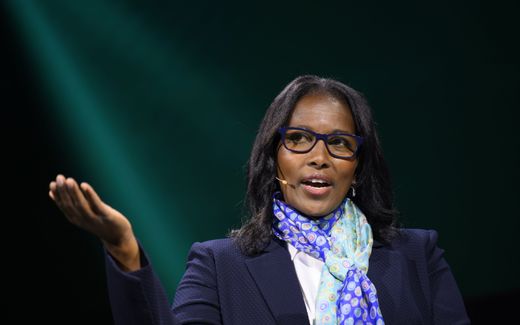Position of Islam questioned again in Europe

Muslims attending a morning prayer at a Dutch mosque. Photo ANP, Robin Utrecht
European Union
For a while, it seemed that tensions with Islam in Europe had come to a conclusion. But the war in Israel moved Islam back to the centre of European politics.
Sweden’s second party wants to demolish mosques. The Islamisation of Sweden continues, argues Jimmie Åkesson. According to the Sweden Democrats party leader, his country must, therefore, demolish mosques that contribute to Islamisation and stop new construction of Islamic places of worship.
The party leader spoke at his party’s first conference since it became involved in the country’s government. The right-wing Sweden Democrats are the country’s second-largest party, and the moderate PM Ulf Kristersson depends on their support.
According to Åkesson, mosques are hubs for radicalisation and violent propaganda. “It is not a right to come to our country and build monuments to a foreign and imperialist ideology”, he said, according to Aftonbladet. The Sweden Democrats now demand a stop to the establishment of new mosques in Sweden. Furthermore, it wants the authorities to be allowed to intercept mosques. “In the long term, we need to start confiscating and demolishing mosque buildings where anti-democratic, anti-Swedish, homophobic or anti-Semitic propaganda or general misinformation about Swedish society is spread.” Åkesson added that “minarets, domes, crescents or other attributes that serve as Islamic monuments in the cityscape should be completely removed.”
Åkesson's words prompted Prime Minister Kirstersson to issue an official statement saying that “Sweden has a constitutional freedom of religion” and that we “do not destroy places of worship”. “As a society, we must fight back against violent extremism,” he said.
Naive
But what do these words mean for Christians in Sweden? The Christian daily Dagen also wonders about this. They asked Anna Sundberg, a church politician on behalf of the Sweden Democrats, to comment on the statements. Sundberg supports Åkesson’s statements about demolishing mosques and argues that Islam is a “great threat” to the West. “We should not be naive,” she said.
Church politician
The Church of Sweden, a former state church, has a political system. All seats in the General Synod were up for election in 2021, in which church politicians are chosen for governing bodies of the Church at the parish, diocese and national level.
At the same time, she acknowledges that freedom of religion must be guaranteed. But Sundberg is firmly against the minarets: “We should have freedom of religion, but not regarding these signs. I’m not against religious gathering places, and it’s not about hindering people’s right to their own beliefs. But it depends a little on how the buildings are designed.”
Sundberg “would like Sweden to be a Christian country.” According to her, the statements of her party leader will not affect churches. “We have been a Christian country for a thousand years, and the churches here have a special position. They are part of the Swedish landscape and are part of our culture. We also have the cross in our flag.”
Dagen reacts critically to Sundberg’s statements. Commentator Frida Park argues that Åkesson’s speech is “filled with deceptive and dangerous rhetoric.” In addition, according to Park, the Sweden Democrats would allow believers to believe only when it does not affect anyone else. “The day Christians applaud SD’s religious policy is the day they also begin the journey towards dismantled freedom of religion and abolished rights to freely preach and evangelise – for Muslims as well as for Christians.”
Conflict
Åkesson’s comments, according to Aftonbladet, must be seen in the light of the war in Israel. And it is precisely that conflict that is causing a wave of not only anti-Semitism in Europe but also anti-Islam rhetoric. Muslims outside Sweden are also experiencing consequences. The German Bayerischer Rundfunk (BR), for instance, states a growing trend of hatred and prejudice against Muslims.

Rima Hananon works for CLAIM in Berlin. This organisation documents incidents specifically directed against Muslims. She states in an interview with BR that since 7 October (the day Hamas invaded Israel, ed.), the number of incidents has grown. “There is a large number of unreported cases because many people do not report anti-Muslim attacks or they are not well recorded.”
Examples of incidents include threatening letters and attempted arson, according to Hanano. “People are verbally attacked on the street and equated with terror and insulted as “terrorists”.”
Pause
Meanwhile, in the Netherlands, the anti-Islam populist Geert Wilders won the general elections in a surprising way; it doubled its seats in parliament. While Wilders has promised to pause his plans to cut back on Islam in his country, only some are reassured. The Dutch daily Trouw reports that in the Netherlands, "just like in Sweden, populism became normalised."
According to the daily, Sweden's “radical right” is no longer absent from the political landscape after the Sweden Democrats tempered their tone. “Statements like: ‘Can someone stand on the Son Bridge with a machine gun?’ (Gunilla Schmidt, former municipal councillor for the SD) and ‘Let the Arabs get paid for raping feminists, then they will have some use’ (Markus Palmheim, also a former municipal councillor) were punished.”
Related Articles









